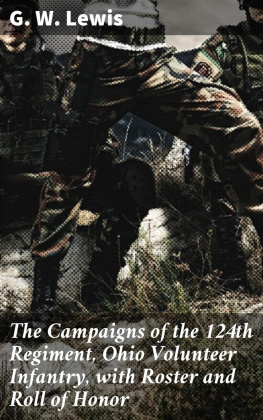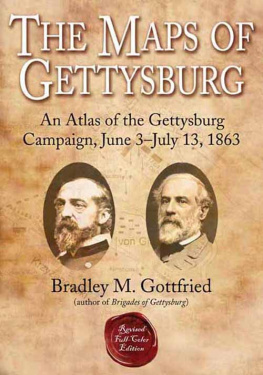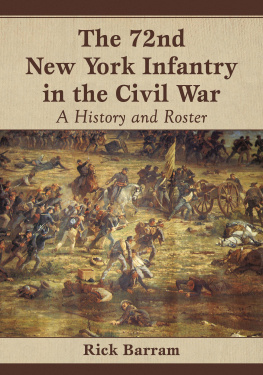
This edition is published by PICKLE PARTNERS PUBLISHINGwww.picklepartnerspublishing.com
To join our mailing list for new titles or for issues with our books picklepublishing@gmail.com
Or on Facebook
Text originally published in 2000 under the same title.
Pickle Partners Publishing 2014, all rights reserved. No part of this publication may be reproduced, stored in a retrieval system or transmitted by any means, electrical, mechanical or otherwise without the written permission of the copyright holder.
Publishers Note
Although in most cases we have retained the Authors original spelling and grammar to authentically reproduce the work of the Author and the original intent of such material, some additional notes and clarifications have been added for the modern readers benefit.
We have also made every effort to include all maps and illustrations of the original edition the limitations of formatting do not allow of including larger maps, we will upload as many of these maps as possible.
SO RUDELY SEPULCHRED: THE 48th NEW YORK VOLUNTEER INFANTRY REGIMENT DURING THE CAMPAIGN FOR CHARLESTON, JULY 1863
By
LCDR Luis M. Evans, USN
TABLE OF CONTENTS
Contents
TABLE OF CONTENTS
REQUEST FROM THE PUBLISHER
ABSTRACT
The 48th New York was a Union infantry regiment that served in the Department of the South when it attempted to capture Charleston, South Carolina, during the summer of 1863.
Recognized for its political, strategic, and maritime value, Charleston was targeted by the North early in the war. The Union Armys Department of the South and the Navys South Atlantic Blockading Squadron were tasked with its capture. Despite their respective attempts to seize the city in mid-1862 and early 1863, Charleston remained firmly in Confederate hands.
In June of 1863, Brigadier General Quincy Gillmore was assigned command of the Department of the South. The new commander believed that in order to capture Charleston, he first had to seize Confederate-held Fort Wagner on the northern end of Morris Island. He claimed that he and his men could take Wagner in less than a week. It would ultimately take them two deadly months.
This thesis details the history of the 48th New York, and its contributions and exploits during this campaign. It also analyzes the profound effect this campaign had upon the spirit and character of the regiment for the remainder of the war.
ACKNOWLEDGMENTS
I gratefully acknowledge LTC David Chuber, USA; CDR Bert Brown, USN; Dr. Jerry Brown, Ph.D.; LTC Dennis Burket, USA; COL Lawyn Edwards, USA; CAPT Gordon Graham, USN; CDR Dave Christie, USN; MAJ Clay Newton, USA; MAJ ,Charlotte Herring, USA; and Ms. Helen Davis for their support in helping me make this long-time project of mine a reality. I especially thank my father, Peter Evans, for his professional insight and loving guidance. My thanks also go to Dena Leff for her faithful support and assistance while I labored to write this work. Lastly, I wish to thank my wonderful staff group (13D) and my close circle of friends from the CGSC Class of 2000, for their benevolence and faithful friendship during this past year at CGSC.
This work is dedicated in honor of the brave and God-fearing men of the original 48th New York State Volunteer Regiment. Their unwavering commitment to the code of Duty, Honor, Country, during this nations most trying period, serves as a model and lasting example for us all.
CHAPTER 1 INTRODUCTION
No monument has been erected there; not so much as a sign-board tells the passer by to this day that any event of historic interest occurred upon that spot.... Upon that arid, sterile, sandy island, where nothing ever grew before, over the whole area of that bastion which had been so heaped with dead, and there only, there grew a blue flower a wild species of forget-me-not that blooms perennially. He [Palmer] made inquiries as to how the flowers came there, but no one could explain it. Somebody may have sown the seed; but those flowers doubtless sprang from the rich dust of the heroes who were so rudely sepulchered upon that spot as if the great God, to rebuke the neglect of the Republic, had placed them there a monument. And what could be a nobler one? Marble shafts will crumble, bronze will tarnish with time, granite will wear away with years, but flowers will bloom in their seasons forever. {1} Private Abraham J. Palmer, Forty-Eighth New York The History of the Forty-Eighth Regiment New York State Volunteers, In the War for the Union, 1861-1865
If one stands on what is now the northern tip of Morris Island and looks out eastward over the sea a short distance, their gaze will fall upon the wartime location of Fort Wagner, a Confederate fortification that guarded Charleston Harbor during the American Civil War. It was there that some of the most desperate and bloody fighting of the war took place. It was also there that countless acts of bravery and many conspicuous deeds of valor were conducted.
However, unlike other existing Civil War locations today, there are no markers, memorials, or physical remnants on site to tell visitors its fate. Nor are there any surviving veterans walking around nearby to tell visitors of the terrible carnage and fighting they witnessed on that spot during the summer of 1863. There are only waves. Time and nature have taken their toll on Wagners location, for it now rests under water. But in a figurative sense, those elements have also eroded our ability to appropriately honor what happened there 137 years ago.
Following the battles, many Northern veterans of the Charleston Campaign returned to see where their lives had once been so imperiled and, in many cases, where they had been irrevocably transformed. They had made the trip to connect with memories, as well as to honor comrades who had been killed during that campaign. {2}
Many veterans came away from these visits full of anger and bitterness because in their estimation, no efforts were being made to recognize their deeds nor honor their fallen comrades. They strongly believed that, at a minimum, a monument befitting the sacrifices and heroism of their dead comrades should be erected near the site. {3} Regrettably, no markers or memorials would ever be placed on or near Fort Wagner during their lifetime.
These veterans also expressed dissatisfaction that not a single Northern account of the campaign had been written to accurately tell their story. There were works available by Confederate veterans and Southern historians to account for what had happened there, but none from the Federal perspective. Additionally, there were many false claims and rumors circulating about what happened at Wagner, and these veterans wanted the truth revealed. {4} Abraham J. Palmer, the official historian of the 48th New York Volunteer Infantry Regiment, and himself a veteran of Fort Wagner, summed up this frustration by writing in the units regimental history:
But it is as true as lamentable, that no one has yet attempted to write with any fullness the history of the assault on Fort Wagner.... But that it should be reserved for Confederate military writers to first acknowledge a deed of unexampled valor by Federal soldiers nineteen years after its occurrence, is certainly noteworthy. {5}
Unlike their Confederate counterparts who, both during and after the war, were accustomed to receiving ringing adulation and high recognition from their countrymen following victories, both during and after the war, soldiers and sailors of the North often found themselves wanting for recognition from the people back home. By the summer of 1863, many Northerners had turned sour on the war. To them, there had been too few victories and far too many deaths.







